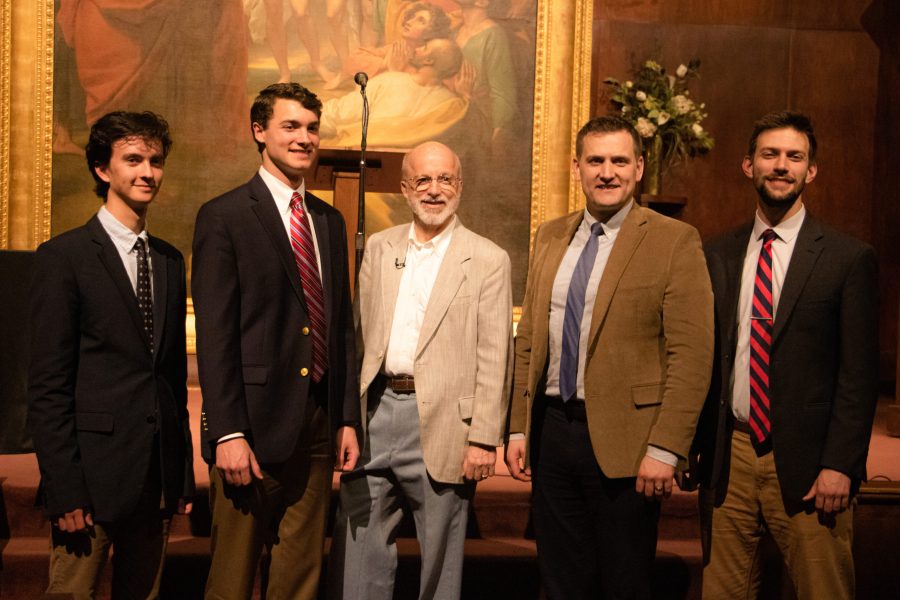For the fourth year in a row, the School of Religion released the winners of the Bell Prize Award on Tuesday, April 5, in War Memorial Chapel.
Presented to School of Religion students who write well-received academic papers, the Bell Prize Award remembers retiree Robert Bell’s passion for Christian scholarship. This year, Stephen Ramsek, a junior biblical studies major, received the first-place prize of $150. Seth Roland, a senior biblical studies major, placed second, claiming the $100 reward, while Josiah Smith, a senior biblical studies major, placed third for the $50 reward.

Photo: Jordyn Britton
The spring of 2019 marked the first year the School of Religion decided to fund this cash prize award and name it after Bell. Theology professor Dan Olinger announced the contest winners on Tuesday. “Dr. Bell was highly influential as a teacher and as an administrator,” Olinger said. “He pushed you really, really hard and made you produce more than you ever thought you could. So when we thought about naming an award that represented an outstanding piece of academic research, there was no question.”
Bell was born to missionary parents in Haiti but came to Greenville at a young age to attend Bob Jones Academy. In 1970, he received a Ph.D. in Old Testament Interpretation and began teaching Old Testament, Hebrew and Systematic Theology courses at BJU, finishing his teaching career with over 50 years of service.
Kevin Oberlin, dean of the School of Religion, studied under Bell during graduate school at BJU. After becoming dean, Oberlin wanted to institute an academic recognition that showcased students’ diligent work during the year. According to Oberlin, the new Bell Prize Award acknowledges Bell and his challenge to students to pursue “scholarly work that promotes scholarship and the church.”
Any student within the School of Religion may submit an academic paper of their choosing to be considered for the Bell Prize Award. Before submitting, students ask the professor who assigned the academic paper to sponsor their work. This provides students with assurance that their paper is prepared at its best and is ready to be judged in competition. Seminary and School of Religion faculty read all the submissions and pick the top three papers of the year.
“We want to recognize these papers in front of the student body to challenge and encourage students to pursue top-notch scholarship,” Oberlin said. “With that spirit in mind, we pick three contestants’ papers for faculty to read and review, and a decision on the winner is made in real-time.”
Though the Bell Prize Award only recognizes papers written within the School of Religion, Olinger believes any of the other schools can produce academic work that is just as impressive. “I am really impressed by the kind of work that a diligent, careful and observant student in any of the schools in the university can do,” Olinger said. “We get really good work out of these students, and I commend them.”





















































